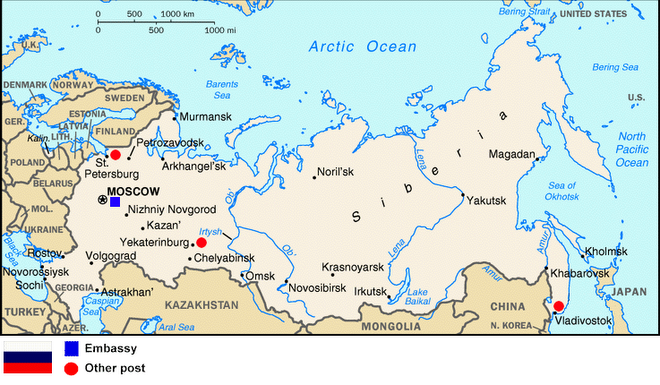This is not true of Russia. Chechnya, which is now almost quiescent – was never a wedge deep across the whole nation; rather it was more like Northern Ireland; a local dispute which was, for the most part, contained and not at all reflective of the wider national conversation (rare hot-spot troubles aside).
So, anyway, the latest example of intellect-lite. The World Values map – which I reproduce below:

Now I am not going to diss this completely – because inasmuch as you can use a bi-linear analysis to summarise the world, it’s not utterly useless. The problem of course is the extent to which you have to adopt completely faux parameters in order make your pretty global picture.
For while I can see that there is some validity to creating a spectrum that runs from ‘traditional values’ through to ‘secular-rational values’; it seems to me that ‘spectrumizing’ – ugh, sorry for that word, but somehow seems to fit here – “survival values’ through to ‘Self expression values’ is invalid.
The survey says of its methodology:
“The second major dimension of cross-cultural variation is linked with the transition from industrial society to post-industrial societies - which brings a polarization between Survival and Self-expression values.”
Nice. So, mate, where would you put Lebanon on that map? People who know me know I am besotted with truly-madly-deeply wonderful Beirut. But, go on: where would you put Lebanon? Indeed, interestingly, I see this map seems to have forgotten the Middle East almost entirely… because Iraq, Saudi Arabia, Qatar, Oman and the Emirates, even Syria, just don’t fit the picture. Ditto, mutatis mutandis, where’s Israel on it? Also, do I really believe that Shinto-revivalist Japan has abandoned religion as much as this survey suggests?
This habit of making pretty pictures and league tables as a substitute to real thinking of course is not new. It all started, with a vengeance, in the 1970s with the management consulta
 nts, Boston Consulting Group; who managed to fit any business you care to mention into one of four inter-locked boxes. The BCG boxes still hold pretty valid – I use them myself – but as our world hurtles faster and faster – thank you technology – to some neo-medieval clash of civilizations, we need much better foreign policy education.
nts, Boston Consulting Group; who managed to fit any business you care to mention into one of four inter-locked boxes. The BCG boxes still hold pretty valid – I use them myself – but as our world hurtles faster and faster – thank you technology – to some neo-medieval clash of civilizations, we need much better foreign policy education.After the calamity of the first half of the twentieth century, the age of gentleman-amateurs conducting foreign policy came to an end (Viscount Halifax being a notoriously good example) and we began to professionalize our approach to foreign affairs: hence the explosion in all those international relations and foreign relations courses. We need, again, a new approach to managing geo-eco-political issues. Cute boxes won’t cut it.





No comments:
Post a Comment